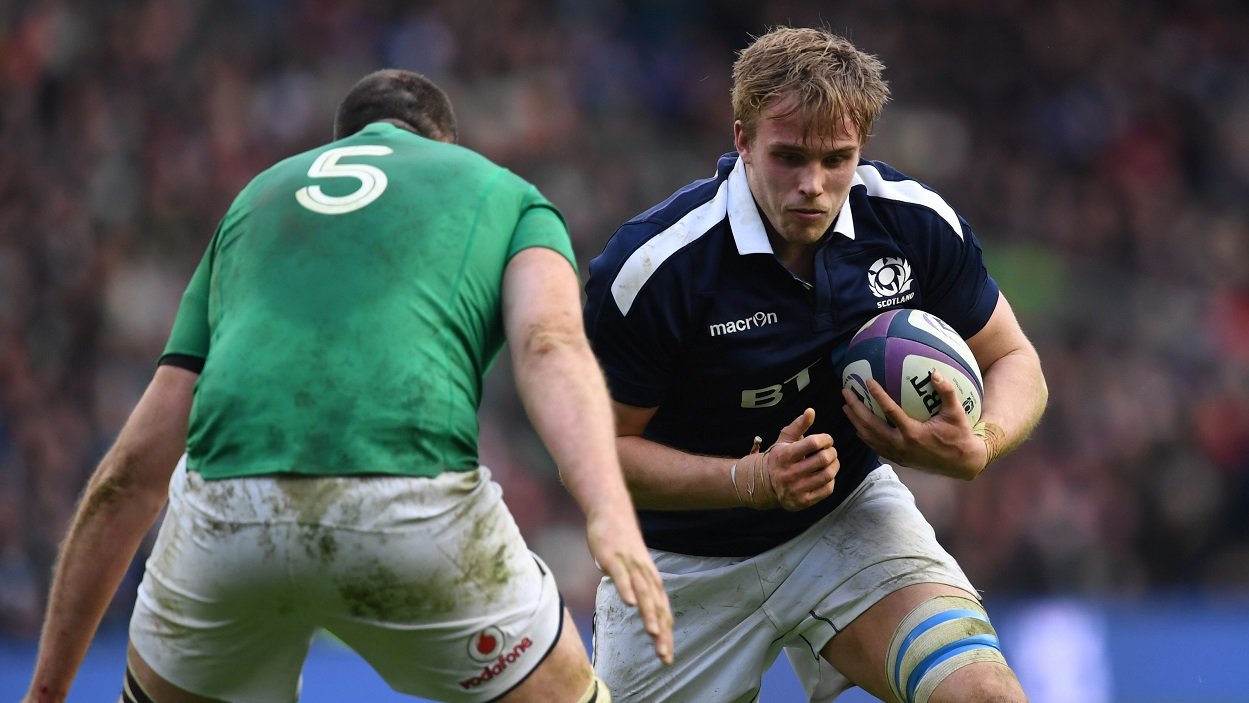Why 15-Win England Need a Change: Six Talking Points from the First Round of the Six Nations

Stuck for something to talk about in the bar later? James Harrington offers some Six Nations opening weekend topics to get the conversation started.
Two early names written in ink on Lions’ tour squad list
Speculative British & Irish Lions’ touring party lists have been doing the rounds on social media for some time, despite the fact there’s a lot of rugby to play between now and the opening match in June. But, assuming Warren Gatland has a secret list of possibles, lightly written in pencil in a suitably merchandised lockable Lions’ notebook, two players will have prompted him to overwrite their names if not in permanent marker (a lot of rugby, remember?) then at least in biro. Neither Stuart Hogg or Jonny Gray are anything like surprise additions to the likely Lions’ list, but their performances in Scotland’s terrific victory over Ireland (only their second opening-day win in the 17-year history of the Six Nations) remain the talk of the weekend. Gray topped the tackle count with 28, as well Scotland’s carries-o-meter with 14. Hogg was, in equal measure, dangerous in attack and assured in defence – his brace of tries were the icing on the cake of a fine man-of-the-match performance. When king-of-the-understatement Vern Cotter admits both have done their chances ‘no harm at all’, you know they done good.
Ireland did not miss Johnny Sexton
Chances are Scotland would have won at Murrayfield even if Sexton had been on the pitch for Ireland. After a slow, maybe slightly nervy start, understudy Paddy Jackson did little wrong and plenty right. The visitors’ problems lay elsewhere – and they were nothing to do with their late arrival at Murrayfield, either. Ireland’s much-vaunted back row was harried and hounded and beaten at the breakdown time after time. It left Conor Murray with little but scraps to feed off until well into the second half, and that killed their challenge before it had started.
France need to rediscover the art of winning
France outplayed England for much of Saturday’s Six Nations’ encounter at Twickenham. Louis Picamoles, for whom the man-of-the-match award must be the most unwanted honour, was immense for Les Bleus, as were Virimi Vakatawa, Kevin Gourdan and Scott Spedding. And yet, France lost a game that they really should have won – for the third time in a row, if you look back to the November internationals. Coach Guy Novès may have had the support of the French rugby faithful coming into this Six Nations, but they will quickly run out of patience with brave defeats. Their next game is at home to Scotland, another side yet to be comfortable with consistent victories. A win – and a good one – is a must.
[rugbypass-ad-banner id=”1485479950″]
Time for a change for England
You would think that continuing a winning streak should mean that the coach has no need to do any tinkering, but England coach Eddie Jones has the opposite problem. England won solely because they have got used to winning, just as France lost because they are hooked on losing. England were flat in the opening 20 minutes, off the pace in the second 20, and just hanging on in the third 20. It was only, really, when Jones cleared the bench – bringing on James Haskell, Jamie George, Danny Care, Ben Te’o and Jack Nowell – that England found a forward gear. There’s a clear argument for having these guys on from the start, with Owen Farrell taking over the captaincy. It was his decision to kick for the corner that led to the decisive try for Te’o, when going for the posts was the better percentage option, given there were still 10 minutes to play.
Rising injury list gives Wales jitters
Wales won in Rome on Sunday, but, on the whole, they were not big and they definitely were not clever. And now, they have bigger problems. With just six days between their opener against Italy and the big game of the second weekend, against England in Cardiff, George North and Dan Biggar are on the doubtful list. The latter is less of a concern, given Sam Davies’ performance at 10, but the powerful North, who ran in a 70m try despite only having 75% of his legs functioning at the time, is a major worry. Coach Rob Howley could not confirm whether Luke Charteris and Taulupe Faletau would be fit to face England at the weekend, leaving Wales with the prospect of facing the defending champions without four key players.
Aw, Referee!
Italy were more than a little unhappy with man-with-the-whistle JP Doyle on Sunday, who pinged them for 16 penalties to Wales’ five. Meanwhile Angus Gardner’s overly fussy refereeing at Twickenham did not help England or France find any kind of rhythm less than 24 hours earlier. Which was a shame, as the thrilling Six Nations’ curtain-raiser that unfolded in Edinburgh, where Romain Poite was officiating, deserved much better second and third acts. None of the four teams involved in the second two matches are without blame – Italy, in particular, should look to their own performance as much as JP’s – but some of the refereeing is hard to explain away.

































































